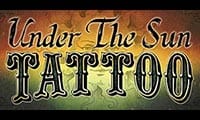12/9: The Battle of Cool Spring
 “The Blood-Tinted Waters of the Shenandoah: The Battle of Cool Spring”
“The Blood-Tinted Waters of the Shenandoah: The Battle of Cool Spring”
After he “scared Abe Lincoln like hell,” Confederate Lt. Gen. Jubal Early withdrew his army from the gates of Washington, D.C. and marched into the lower Shenandoah Valley. Federal troops pursued, Lincoln hot on the back of their commander, insisting that Early not be permitted to escape. The result was the largest clash of the Civil War in Clarke County, 13,000 troops facing each other in what became known as the Battle of Cool Springs.
This two-day battle of July 17-18, 1864 cost 165 men their lives, with hundreds more wounded. While not the butcher’s bill of more famous battles, each soldier’s life lost made it the most important battle of the Civil War to his loved ones back home. Moreover, the fight is notable because the soldiers battled not only the enemy, but the elements, and in a sense, their own comrades.
Soldiers marched and fought in sweltering heat and humidity. The Shenandoah River cut through the battlefield, forcing men to wade across just to find the dry land needed to start killing the foe. And unknown to them, a deadly whirlpool (called by locals “Parker’s Hole”) lay in wait to drag down and drown the unwary. Finally, an actual hurricane was on its way, its lightning from heaven posed to add to the casualty list after the battle of men ended.
In an ironic twist of fate, U.S. soldiers were guided to the attack by a local man who had started the war as a member of the famed Confederate “Stonewall Brigade,” but who later deserted and switched sides. Other soldiers also felt that they were betrayed by their own comrades, some because they broke and ran after the fighting began, others because they remained safely on the other side of the river, seemingly refusing to come to their aid as they faced annihilation from determined enemy assaults. This sense of betrayal led to decades of post-war recriminations in veteran publications.
A relatively “small” battle, Cool Springs led to important consequences. Lincoln was disturbed that Early not only escaped but defeated his pursuers in the process. This ultimately led to appointment of a new Union leader, Maj. Gen. Phillip Sheridan, whose ruthless pursuit of Early and his men, and related determination to destroy the civilian resources of the Valley that fed them and Lee’s Army, resulted in what became known to this day as “The Burning.”
Cool Springs is filled with human interest stories of suffering and bravery, with a dose of “what ifs?” that ask the audience to consider how the battle, and its results, might have played out differently. The battlefield itself is now owned by Shenandoah University, offering an open air classroom for those interested in the men who fought and died there.
To present this intriguing but little-known story about the Civil War in our Shenandoah Valley, on Tuesday, December 9, the Roanoke Civil War Round Table—winner of a 2024 Kegley Award for Heritage Education [see https://roanokepreservation.org/preservation-awards/]—will host Jonathan A. Noyalas.
Professor Noyalas is the Hugh & Virginia McCormick Chair in Civil War History at Shenandoah University and director of Shenandoah’s McCormick Civil War Institute. He is the author or editor of seventeen books including Civil War Legacy in the Shenandoah: Remembrance, Reunion, and Reconciliation, and most recently General Philip H. Sheridan: Life, War, and Memory (Routledge). Jonathan has appeared on C-SPAN’s American History TV, NPR’s “With Good Reason,” and served as a consultant for National Geographic’s three-part documentary series “Civil Warriors,” as well as being a consultant for a variety of public history projects with organizations including National Park Service. He is the recipient of numerous awards for scholarship, teaching, and service including the highest honor that can be bestowed upon a professor at a public or private college/university, the State Council for Higher Education in Virginia’s Outstanding Faculty Award.
Date, Time & Location: Tuesday, December 9 (7:00 pm), Chapel of the Residents’ Center at Friendship, 397 Hershberger Road, Roanoke, VA, 24012. Admission $5.00 for Non-Round Table Members (and becoming a Round Table member is welcome).








